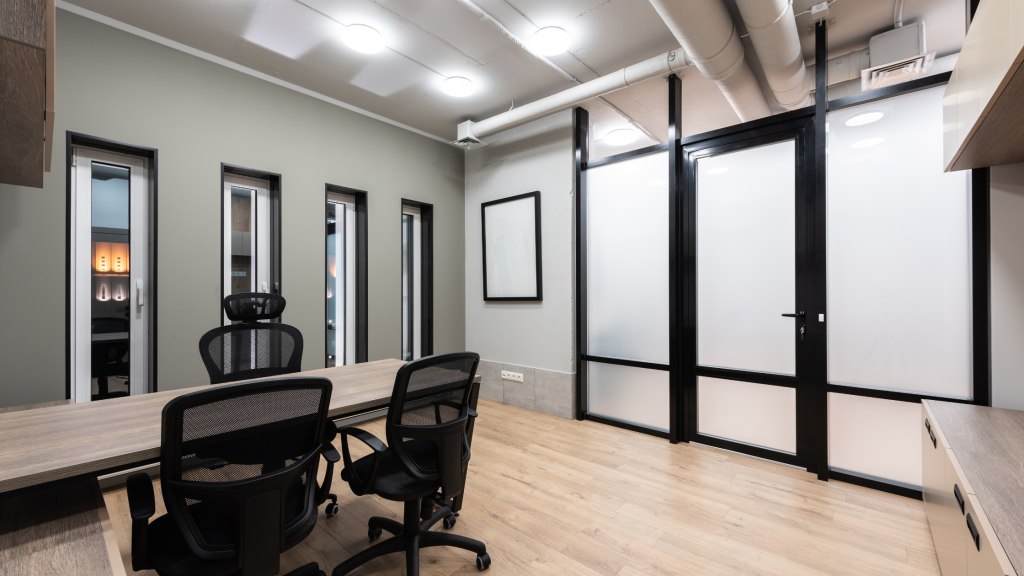What is a Virtual Office?
Introduction
A virtual office is a service that gives your business a professional business address, mail handling, live receptionist support, and call forwarding, all without the need for a physical office space. It’s designed for entrepreneurs, small business owners, and CEOs who want to run a lean operation while still appearing credible and established.
Instead of leasing an expensive office, a virtual office lets you work from anywhere, whether that’s your home, a coworking space, or across the globe, while still maintaining a polished presence. With features like mail delivery, call handling, and optional access to meeting rooms, it offers the flexibility and support many modern businesses need.
In this article, we’ll break down how virtual offices work, what services they include, and why they’ve become a smart solution for today’s growing companies.

How a Virtual Office Works
Once you sign up with a virtual office provider, your business is assigned a professional address, usually in a well-known commercial area. This becomes your official business address for mail, licensing, online listings, and customer trust.
From there, most providers offer additional services like mail delivery, where incoming mail is either scanned and emailed to you or forwarded to your preferred location. You also gain access to live reception and call handling, meaning a trained receptionist answers your business calls in your company name and routes them to you or takes messages.
Depending on your needs, you may also be able to reserve physical office or meeting space when you need it, without the cost of maintaining one full-time. It’s all managed through an online dashboard, making it easy to access your services from anywhere.
Key Features of a Virtual Office
Virtual offices offer a variety of services that help small businesses maintain a professional image without the cost of a physical office. One of the most important features is a professional business address, often located in a prestigious area. This gives your company added credibility, improves trust with customers, and is ideal for use on legal documents, business listings, and marketing materials.
Another essential service is mail delivery and handling. Any mail or packages sent to your virtual office address are securely received and processed. Depending on your provider, you can choose to have your mail forwarded to another location, scanned and emailed to you, or held for pickup, giving you flexibility and control over how you receive important documents.

Virtual offices also include live reception and call handling, where trained professionals answer calls using your company name. This ensures your clients always get a professional response, even when you’re unavailable. Calls can be forwarded directly to you, or messages can be taken and sent to you by email or text.
For businesses that occasionally need physical space, many virtual office providers offer on-demand meeting rooms. These can be reserved as needed for client meetings, interviews, or team gatherings, giving you access to a professional environment without the expense of a full-time lease.
Benefits of Using a Virtual Office
A virtual office offers clear advantages for small business owners and CEOs who want to stay competitive without heavy overhead costs. One of the biggest benefits is cost savings. Renting a traditional office can be expensive, especially when you factor in utilities, maintenance, and furniture. With a virtual office, you get the same professional presence for a fraction of the price.
Another major benefit is flexibility. You can run your business from anywhere, whether that’s your home, a coworking space, or while traveling, without sacrificing professionalism. This flexibility also makes it easy to scale. As your business grows, you can add services like additional mail handling or extra phone lines without committing to a long-term lease.
A professional image is another key advantage. A recognizable business address and a live receptionist make your company appear established and trustworthy, which can be essential when attracting clients or investors. Combine this with reliable mail delivery and call handling, and you have a setup that feels like a full office staff, without the cost or management hassle.
Lastly, a virtual office supports a work-from-anywhere lifestyle, allowing you to focus on your business rather than the logistics of managing a physical location.
Who Should Use a Virtual Office?
A virtual office is ideal for a wide range of business owners and professionals who want to operate efficiently without being tied to a physical space. Entrepreneurs and solopreneurs often use virtual offices to establish a professional presence from day one, even if they’re running everything from a laptop at home. It’s a smart way to look credible while keeping startup costs low.
Small business owners and remote teams benefit as well. If your employees work from different locations, or if you don’t need a full office every day, a virtual office gives you structure without the commitment of a lease. You can still receive mail, route calls, and meet clients in a professional setting when needed.

Freelancers and consultants also use virtual offices to separate their personal life from their business. Using a business address instead of a house address not only boosts privacy but also helps with branding and client trust.
Even international companies use virtual offices to establish a local presence in the U.S. without setting up a full physical operation. It’s a scalable, flexible solution for businesses of all sizes that want to grow smart and stay lean.
Virtual Office vs. PO Box vs. Coworking Space
When looking for alternatives to a traditional office, business owners usually consider three options: virtual offices, PO Boxes and coworking spaces. Each serves a purpose but they offer very different levels of professionalism and function.
A virtual office gives you a real business address, not just a mailbox. You can use it to form an LLC, list your business on Google Maps, receive packages and present a polished image to clients. You also get access to services like mail delivery, live reception and call handling and meeting rooms, all without needing a physical office.
A PO Box is more limited. While it’s useful for basic mail, it’s not a real street address. That makes it a poor fit for many businesses. In some states, you can’t register a business with a PO Box and it’s not accepted for things like Google Business listings or merchant accounts.
Coworking spaces give you a physical place to work. They’re great for networking or short-term use, but they usually lack services like call handling or mail forwarding. They also tend to cost more if all you need is a business address.
If you want the image of a full office without the daily overhead, a virtual office gives you the best mix of professionalism and value.
How to Choose the Right Virtual Office Provider
Not all virtual office services are the same. It’s important to choose a provider that fits your business needs and goals. Start by looking at the location of the business address they offer. A well-known or high-profile area can instantly boost your company’s credibility, especially if you’re trying to attract quality clients or partners.
Next, check the quality of mail delivery and handling. Make sure they offer options like forwarding, scanning or pickup based on how you want to receive your mail. Some providers charge extra for these features, so it helps to know what’s included in the monthly price.
The live reception and call handling service is another big factor. Look for a provider that uses trained receptionists who answer calls with your company name and either forward them or take messages. This small touch can really shape how people view your business.
Think about meeting room access too. Even if you don’t need it right away, it’s helpful to have the option when your business grows or you need to meet clients in person.
If you’re looking for a provider you can count on, Opus Virtual Offices offers everything in one place. That includes professional business addresses, live receptionist services and nationwide locations. It’s a great option for small businesses and CEOs.
Lastly, take time to review the contract terms, pricing and customer support. A good provider should be clear, flexible and available when you need them.
Final Thoughts
A virtual office is a powerful tool for today’s business owners. It helps you maintain a professional image, simplify operations and cut down on costs. With features like a business address, mail delivery and live reception and call handling, it gives small businesses and CEOs the feel of a traditional office without the high price or long-term commitment.
Whether you’re just starting out, growing fast or shifting to a remote setup, a virtual office keeps you flexible while still presenting a polished and professional brand. It’s a smart move for any business that values credibility, privacy and mobility.
If you’re ready to take your business presence to the next level, Opus Virtual Offices has everything you need. From nationwide locations to live support and flexible plans, it’s built to help growing companies succeed.


























